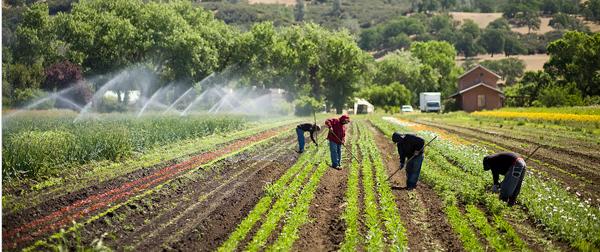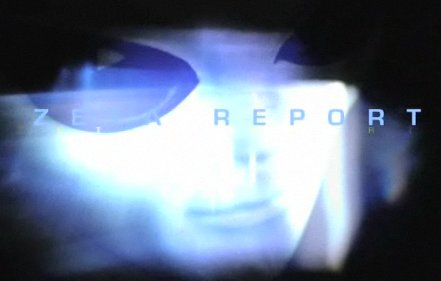Michelle's Harvest
The White House garden had a photo op, a harvest day to parallel the planting session with school
children in April. Just two months into the Summer, the harvest is plentiful. I, Nancy, was concerned that
they would miss the opportunity to talk about saving seed. Without seed, there is no garden. It won't be
possible to simply trot to the store and buy seed, or purchase from a website on a nonexistent Internet. I
was pleased to see that the opportunity was not lost. Seed saving got a mention.

- Michelle Obama Garden Harvesting Outfit: Comin' Up Roses!
June 6, 2009
http://www.huffingtonpost.com/2009/06/16/michelle-obama-garden-har_n_216467.html
- Children from the Bancroft elementary school who had helped First Lady Michelle Obama
plant a vegetable garden in April were invited back today to harvest vegetables. White
House associate chef Sam Kass said the garden has produced lettuce, snap peas, beans,
kale, collards and chard. The children were accompanied by their principal and teachers.
The children concentrated on harvesting lettuce and peas. No chemicals - fertilizer or
herbicide - had been used on the garden, but that the underlying White House soil had been
"amended" with crab meal from the Chesapeake Bay, green sand compost and lime
powder. The only problem he had noticed is that "something is nibbling a little bit on the
kale." The garden "is not "certified organic." There has been one big weeding once a
week. 90 pounds of produce has been harvested from the garden, including broccoli and
green beans and "one beautiful eggplant." The garden has produced only one cucumber,
saved for the children to harvest today. It is supposed to be a white cucumber, but it had
turned yellow. The children were told that the Thomas Jefferson lettuce has already gone
to seed and the children were told about farmers passing seed down through the
generations.
Now the Queen of England is following suit, having a royal garden this year. A related trend is the
increased incidence of college students seeking summer internships on farms. Where this might be
related to the struggling economy, there is a distinct enthusiasm among these students for the calluses and
aching muscles that come with the job.

- Many Summer Internships Are Going Organic
May 23, 2009
http://www.nytimes.com/2009/05/24/dining/24interns.html?_r=1&ref=dining
- Erin Axelrod, who graduated from Barnard College last week with an urban studies
degree, will not be fighting over the bathroom with her five roommates on the Upper West
Side this summer. Instead she will be living in a tent, using an outdoor composting toilet
and harvesting vegetables on an organic farm near Petaluma, California. Whatever the
reason, the interest in summer farm work among college students has never been as high,
according to dozens of farmers, university professors and people who coordinate
agricultural apprenticeships. Andrew Marshall, who began organizing apprenticeships for
the Maine Organic Farmers and Gardeners Association in 2003, used to see an average of
75 applications a year. This season, he has fielded over 200, with more coming in every
day. Katherine L. Adam, who runs the National Sustainable Agriculture Information
Service, financed by the Department of Agriculture, said 1,400 farms sought interns this
year, almost triple the number two years ago. The number of small farms, which attract
the new agrarians and can use the cheap, enthusiastic help, has grown sharply since 2003,
according to the department.
Per the Zetas, these changes reflect the subconscious awareness of the times ahead, typical of
contactees.
ZetaTalk Prediction 10/15/1995: Contactees who have become comfortable with their
understanding of the alien presence and any role they have volunteered to perform during the
Transformation are seldom passive. They reflect this in their daily life, as is inevitable following
any overreaching concept grasped or heavy commitment. Just as the decision to settle down into
married life can often be read by others, as perhaps taking up cooking or giving up singles
parties, likewise the awakened contactee can often be recognized. The signs are subtle and in the
normal course of human events would leave no mark, in that the alien presence is seldom
discussed. But the awakened contactee changes, in not so subtle ways, the whole course of their
life. The impact can be equated to joining the priesthood or the peace corps or the military. The
contactee's whole life is affected.
And the collective conscious is also a factor, as food prices have been going up outside of the rate of
inflation.
ZetaTalk Comment 6/7/2008: The collective conscious is often mentioned as a reason the
populace seems to become aware of matters without being told directly by the media or the
authorities. It is more than telepathy. It is body language noted during everyday activities, and
also simply computing what is happening and extending this out into the future. Food prices are
rising dramatically. This would not be happening if shortages were not happening. It is only
logical to realize this. Price gouging to the extent of the current price rises would not be allowed.
The gouging would not be overlooked. Those who can garden are anticipating saving money, and
don't anticipate that prices will go down. This is occurring whether or not they are aware of a
larger picture re Planet X, etc.
One Billion Starving
The UN has announced that the number of people in dire need of food has topped one billion. Though
this is not much higher than the 963 million in that category in 2008, it graphically shows the state of the
world and the trend.
- U.N. Warns of Catastrophe as Hungry People Top One Billion
June 12, 2009
http://www.reuters.com/article/worldNews/idUSTRE55B3M020090612
- High food prices have pushed another 105 million people into hunger in the first half of
2009, the head of the U.N. World Food Programme said, raising the total number of
hungry people to over 1 billion. Urging rich nations at a meeting of G8 development
ministers not to cut back on aid, Josette Sheeran said the world faced a human catastrophe
as more people struggle to eat a decent meal. In 2008, FAO said the world's hungry
numbered 963 million. The agency says it has had to cut food aid rations and shut some
operations in eastern Africa and North Korea because of the credit crunch. She said
despite a decline in most food prices from record peaks last year, they remained high in
developing countries, while global food aid was at a 20-year low. The financial crisis has
made things worse, and in terms of staple food, people in poorer countries today can only
afford about a third of what they could afford three years ago.
The Zetas, and the Zetas alone, predicted crop shortages at this time, due to the weather extremes such
as drought and deluge which they also predicted in 1995, when no one else was making such
predictions.
Question: What factors have made this situation different from previous years? I remember
when US farmers produced so much wheat that it depressed the market so much, many chose to
let crops rot in the fields rather than harvest them to sell for a loss.
ZetaTalk Answer 6/13/2009: This is almost entirely due to weather related problems. We and we
alone predicted crop shortages back in 1995 when the ZetaTalk saga first began. We knew that
the wobble would develop and what it would do to the weather, which we also predicted with
great accuracy back in 1995 when no one else was mentioning this. But problems with crop
shortages actually appeared in 2000, due to the weather. It was not the wobble alone that causes
weather related problems, as the roiling core of the Earth, responding from a distance to the
approach of Planet X, likewise affects the weather by affecting undersea volcanoes. Drought,
deluge, late frosts, early spring thaws, and dying bees. All are affected by the weather or the
roiling core which affects the immune systems of bees.
Finegan Fine
I wrote a new script, converting this to book form free to the public, about life in the Aftertime on a
houseboat. The hero is Finegan Fine, based on a true life character who made many contributions to the
Troubled Times topics in its early days. Being a trader in the Aftertime, running a boat up and down
flood swollen rivers, was his idea. Quoting from the Introduction to the online book, which is available
both as a PDF file and chapter by chapter in web format:
This is a tale about a houseboat living in the Aftertime. The pole shift has happened and the
waters have risen several hundred feet due to melting poles and glaciers and the heating of the
ocean bottom. The rising sea level is happening slowly but steadily, forcing survivors to relocate
when they discover the flood is not receding. Finegan Fine has found a niche in this new world by
running a trading boat along the new coastline and up and down ever broadening rivers.
The main theme is the sociological adaptation of the populace to the lack of rescue and rising
waters after the cataclysms. Finegan meets survivors from all walks of life: the very wealthy who
expected to survive in their well stocked enclaves, the politically connected who expected rescue
on demand, the wealthy who thought their bankroll would buy them comfort, suburbanites
unprepared to be self sustaining, those who stubbornly refused to leave their cities and towns and
steadily starve to death, families who are separated from each other, rural folk familiar with
local produce, immigrants caught a long way from home, pedophiles peddlers selling children,
the handicapped who take hardship in stride, military men cut off from their commanders,
former politicians trying to establish a continuity of government, those who turn from their
responsibilities and those who raise orphans and care for the aged, teens without supervision, the
deluded who think the good times will return, and those trying to maintain slave labor camps.
A second theme is the devastation itself, which is widespread. Florida is under water, trapping
those who lingered too long. Coastal subdivisions and river front towns are steadily flooded,
often forcing people to repeatedly relocate. Satellites have been torn from the sky, so
communications are by short wave radio at best. Rescue is simply not forthcoming. A third theme
is survival techniques. Survivors adapt by eating atypical but highly nutritious foods. They live in
makeshift shacks and tents. Electricity is generated from windmills or by pedals. Barter is the
mode and the dollar is dead. A fourth theme is how people react to the crisis - by rising to the
challenge and helping one another or by looting and hoarding. Survivors are on their own and
must rely on resourcefulness and cooperation with others for survival. Those that mistreat others
find themselves without supplies or friends in due time.
An example of what to find in the free book is a portion of the chapter titled The Orphanage. This
chapter, one of 25 the book offers, not only addresses the distress of those newly orphaned after the
pole shift, when social services will likely to stopped altogether, but takes the opportunity to educate the
public about a little known meat substitute. Corn and Amaranth, when mixed together, form a protein
equivalent to meat. A third issue addressed is the ease with which chickens can be kept if free ranged in
a temperate climate. Bugs are their preferred meal and they are aggressive in snatching up bugs. The
result: a bug free garden with a bonus of eggs and meat.
- The orphan mistress has graying hair, barely pinned on top of her head in a bun. Her dress is
tattered and hanging on her body as though at one time she were somewhat overweight. She
looks immensely weary, and walks as though she might not make the next step. She stops to take
her breath and looks up at the visitors. Seeing them non-threatening, she raises a hand weakly,
as though saying a "hello", and then walks forward toward the dining area. She takes a seat on
the picnic table, sighing as though relieved to be off her feet. Taking a deep breath to gain her
strength, she lifts her face to smile at the visitors and waves them forward to join her. She directs
her charges.
- Stir that fire and put on a pot. We'll serve some tea.
- Finegan introduces himself.
- Morning mam. Finegan Fine here and my partner Joey. I'm a trader, moving up and down
these parts. Got my houseboat out there at the end of your field. Pretty impressive plots
you have there. You plant and harvest that all by yourself?
- The orphan mistress smiles and winks at the absurdity of this idea.
- Fortunately, I've got plenty of help.
- She leans back, having caught her breath, and continues to direct her young charges.
- Honey, use that other pot. It has a spout. That's it.
- Finegan says,
- These aren't all yours . .
- The startles orphan mistress responds,
- Oh Heaven's no. I'd surely be in the ground if that was the case! Picked them up in
Montgomery when the troubles hit. I was down there visiting, checking on some friends of
mine that can't move around so good no more. After I buried them . . heart attack and
such . . I was heading back home and found these kids just lost. . . Been weeks, and no one
came to collect them. . . Well, what could I do? . . We came home together. Been a blessing,
these darlin's have been. A blessing.
- Finegan's mouth drops open at this unexpected description of a dozen or more orphans, some
obviously only toddlers when she collected them, being described by this exhausted woman as a
"blessing". He catches himself as he realizes they are watching his reactions.
- Oh, indeed. My Joey here's the same. Got separated from his parents and we joined up.
He's a blessing, no doubt about it.
- The older children are arranging the cups and spooning some sort of tea from a tin into each cup,
then pouring hot water from a pot of water taken from the stove. They bring the first cup to
Finegan. Finegan says,
- Oh, no, give the first cup to, ah, your mistress here. . .
- The orphan mistress smiles at his chivalry, and accept the cup, sipping from it with half closed
eyes as though it were something magical, a source of rejuvenation. Finegan accepts the next
cup.
- I can't help but wonder at your fields. I been up and down this coast. Found some folks
that planted pumpkin, but most do vegetable gardens in rows, and they work at that day
and night. You've got fields . .
- The orphan mistress looks up from her cup of tea, suddenly realizing what he's missing from the
picture.
- I been at this business for some years. Planted corn and amaranth, being vegetarian and
all. Don't need meat if you got those. Made a mix for the local organic outlets. Amaranth
greens are a good salad too. Made my living at that. No need to plow if you keep the weeds
down regular. Just re-seed.
- The orphan mistress waves in the direction of the wall of young children clustered behind her,
each clutching a cup of tea.
- These are the best little weed pickers I ever seen. You pull a weed up, the grubs and beetles
fall out, and the chickens clean them up. You go down the rows and knock the bugs off the
plants, and the chickens foller along and clean them up. What's left is our produce, bug
free. . . and eggs. We got lots of eggs.
Ode to Fans
ZetaTalk has been blessed with a talented and devoted fan club. Most work quietly behind the scenes,
providing service by maintaining mirror websites, providing relevant news articles, taking wobble
measurements, checking for typos, spreading the word on the Internet, and otherwise holding the
household here where ZetaTalk is generated together. Others are an Internet or world reknowned
presence in their own right. Today I applaud Eric Pham, David Dees, and John Holmdahl of the World
Synergy Institute.

Eric is in the film production business, accomplished on many fronts, personally versed in the full range
of activities. He encouraged me to start a newsletter, and was the driving force behind the Zeta Report
video series, filling in the technological gaps until I got my feet under me and learned the process. He
provided his talent and handiwork as can be seen in the Zeta face intro on the lastest videos. Eric has
provided a secure video archive base for all the Zeta Report videos on the Revver website, including
those that YouTube refused to host.

David burst onto the Internet scene only in the past few years as a political satirist, though has been an
artist all his life. His art work is featured on Jeff Rense, Alex Jones, and David Icke websites on
occasion, with an archive on the Rense site. His art work reflects the fact that he is an target="_top">espoused
contactee who takes the coming passage seriously.
John Holmdahl, the president of the World Synergy Institute, has a long-standing network of
like-minded influential acquaintances that reach around the world and into the stars, including the
corridors of the White House. An accomplished wordsmith, John is working behind the scenes to
awakening the world to its coming future, with all the possibilities of what this world might become.
I and the Zetas thank these fans, as well as all the others who have contributed so much behind the
scenes.
You received this Newsletter because you Subscribed to the ZetaTalk Newsletter service. If undesired, you can quickly
Unsubscribe.
|

